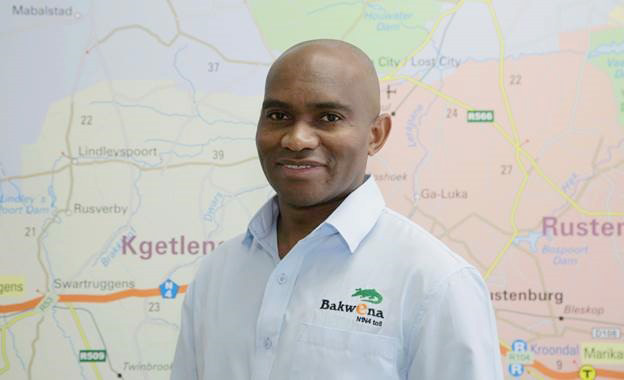A socio-economic heart attack looms for SA!
A socio-economic heart attack looms for SA!
Without vital road arteries to move food and other basic supplies seamlessly, South Africa could face a socio-economic heart attack. This warning has been sounded by Bakwena Platinum Corridor Concessionaire COO Solly Kganyago.
His warning comes after the recent unrest that placed chokeholds on the N2, N3 and major roads around Durban, and destabilised supply chains in KwaZulu-Natal and Gauteng. These events served as a reminder of the crucial role played by road networks in the transportation of goods across southern Africa.
“The efficiency and speed with which the authorities managed to restore calm and reopen the critical trade corridors are commendable despite the damage sustained to infrastructure. This quick recovery facilitated the conveyance of essential goods and services using the road network. It speaks not only to the reliability and proficiency of the stakeholders responsible for maintaining the high standard of the roads but also to the role these roads play in keeping our economic heart pumping,” says Kganyago.
Estimates from the rating agency S&P suggest that the cost to the national economy caused by the riots sits at R50 billion. However, the Road Freight Association (RFA) says the country’s GDP may take a further knock as cargo owners and customers choose to move cargo through neighbouring countries rather than using South Africa’s road and freight infrastructure.
To ensure South Africa’s regional counterparts find the country’s road networks economically desirable, Bakwena manages 90 km of the N1 running from Pretoria northwards to Bela-Bela and a 295-km section of the N4 running from Pretoria westwards, through Rustenburg and Zeerust, to the Botswana border. These routes are responsible for transporting goods from South Africa to the Southern African Development Community region including Botswana, Namibia, the Democratic Republic of the Congo, Mozambique, Zambia and Zimbabwe, making them fundamental paths in sustaining the economy of southern Africa.

According to the latest Ctrack Freight Transport Index, more than 150 million tonnes of cargo was transported by road between January and March 2021, compared to just 40 million moved by rail.
RFA CEO Gavin Kelly says that, based on the major role that roads play in upholding the economy, roads should receive the same status as national key points.
“Are roads not ensuring the continuing roll-out of the vaccination programme? Are they not ensuring that there is food security? We can keep South Africa fed but we need the routes to do that. Government needs to protect the logistical routes and all the vital links to move food and supplies around the country and keep the economy going,” he says.
Roads also play an unquantifiable role in the social cohesion and inclusion of communities that would otherwise be excluded from participating in the general economy due to their respective geographies. This vast transportation network also connects rural and urban neighbourhoods, allowing them access to services such as health, social grants and education facilities that may lie outside of the reach of their immediate communities.
“Considering the immense contribution that roads make towards the development and growth of the country and its citizens, their maintenance must, therefore, be a top priority for the public and private sectors,” says Kganyago.
Published by
Focus on Transport
focusmagsa




